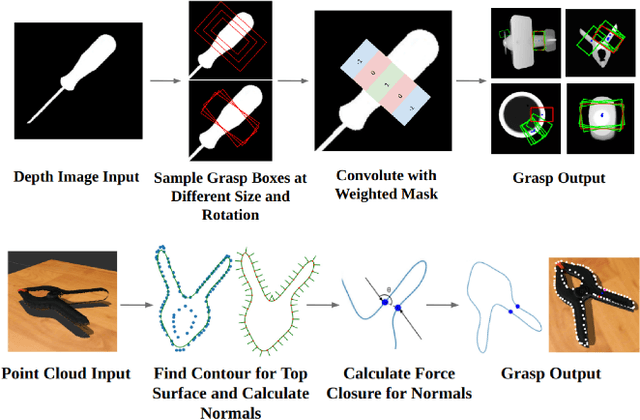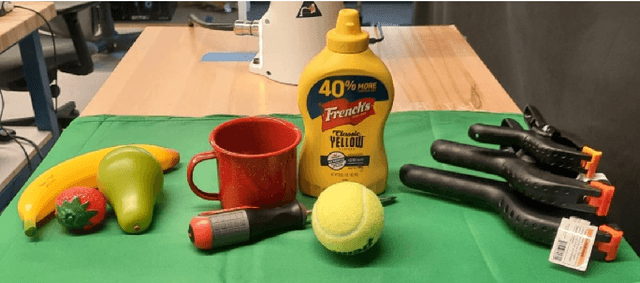Vinarak Kapoor
A Benchmarking Study of Vision-based Robotic Grasping Algorithms
Mar 14, 2025



Abstract:We present a benchmarking study of vision-based robotic grasping algorithms with distinct approaches, and provide a comparative analysis. In particular, we compare two machine-learning-based and two analytical algorithms using an existing benchmarking protocol from the literature and determine the algorithm's strengths and weaknesses under different experimental conditions. These conditions include variations in lighting, background textures, cameras with different noise levels, and grippers. We also run analogous experiments in simulations and with real robots and present the discrepancies. Some experiments are also run in two different laboratories using same protocols to further analyze the repeatability of our results. We believe that this study, comprising 5040 experiments, provides important insights into the role and challenges of systematic experimentation in robotic manipulation, and guides the development of new algorithms by considering the factors that could impact the performance. The experiment recordings and our benchmarking software are publicly available.
 Add to Chrome
Add to Chrome Add to Firefox
Add to Firefox Add to Edge
Add to Edge